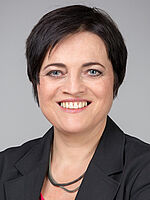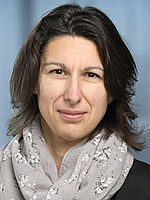From November 25 to 28, 2025, the second international Food System Microbiomes Conference will take place in Wageningen, Netherlands. Following the successful inaugural event in Turin last year, the conference will once again bring together leading experts from science, industry, and policy to discuss the role of microbiomes in building sustainable food systems.The AIT Austrian Institute of Technology is a key participant: Angela Sessitsch, Head of the Competence Unit Bioresources at the AIT Center for Health and Bioresources, serves as Co-Chair, while Tanja Kostic, AIT Senior Research Engineer, is actively involved in organizing the conference in her role as Managing Director of the MicrobiomeSupport Association.
Microbiomes as a Key to Sustainable Food Systems
Microbiomes—communities of microorganisms and their interactions within a given environment—play a fundamental role in the stability and resilience of agricultural and food systems. They influence soil fertility, food quality, and the health of plants, animals, and humans. Despite significant advances in microbiome research, many questions remain unanswered, particularly regarding the interconnectedness and interactions of microbiomes across different elements of the food system. This conference provides a crucial platform to present cutting-edge scientific findings and practical applications.
Supporting Early-career Researchers
A key focus of the conference is the ESR Session ("Emerging Frontiers in Microbiome Science for Sustainable Food Systems"), which is organized by early-career researchers themselves. It offers young scientists an opportunity to present their innovative projects to an international audience. The deadline for abstract submissions is April 30, 2025.
AIT as a Driving Force in Microbiome Research
AIT makes a significant contribution to the conference through its research. Angela Sessitsch emphasizes the importance of microbiomes for the future of agriculture: “The study and targeted application of microbiomes is a key lever for creating resilient food systems. Science and industry must work together to advance this field.” In addition to Sessitsch, Tanja Kostic plays a central role in planning and organizing the conference, bringing both scientific expertise and leadership in the microbiome research community.
Future Perspectives for Research and Practice
The Food System Microbiomes 2025 Conference provides a unique opportunity to connect interdisciplinary research and develop solutions for sustainable food systems. By actively supporting early-career researchers, the conference fosters not only new research perspectives but also future collaborations.
More information on the conference and ESR session participation is available at:
www.foodsystemsmicrobiomes.org





